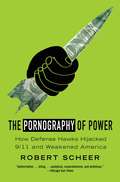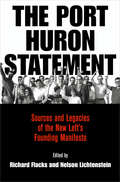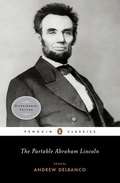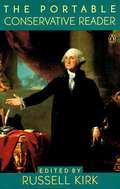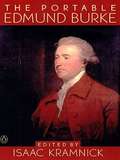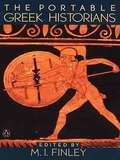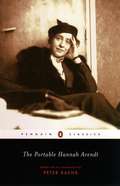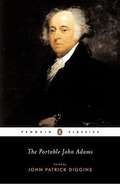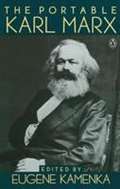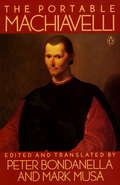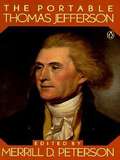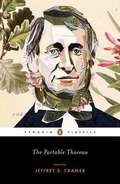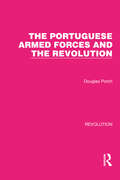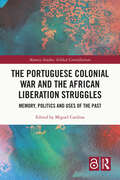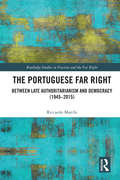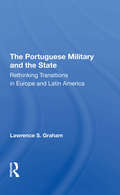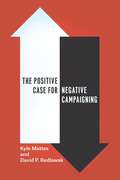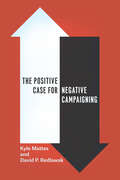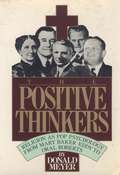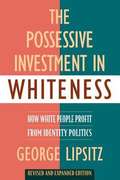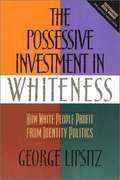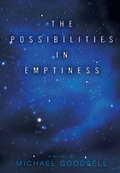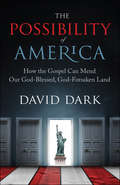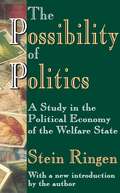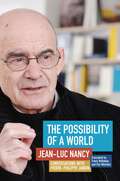- Table View
- List View
The Pornography of Power: How Defense Hawks Hijacked 9/11 and Weakened America
by Robert ScheerIn the course of his forty-year-career as one of America's most admired journalists, Robert Scheer's work has been praised by Gore Vidal, Susan Sontag, and Joan Didion, who deems him "one of the best reporters of our time." Now, Scheer brings a lifetime of wisdom and experience to one of the most overlooked and dangerous issues of our time - the destructive influence of America's military-industrial complex. Scheer examines the expansion of our military presence throughout the world, our insane nuclear strategy, the immorality of corporations profiting in Iraq, and the arrogance of our foreign policy. Although Scheer is a liberal, his view echoes that of former Republican president General Dwight Eisenhower, who, in his farewell speech to the American people, spoke prophetically about need to guard against the growing influence of the military-industrial complex. In George W. Bush's America, politicians like Ike and Richard Nixon seem like prudent centrists. The views of libertarians, liberals, and pacifists are often overlooked or ignored by America's mainstream media. The Pornography of Power is the culmination of a respected journalist's efforts to change the terms of debate. At a time when many are exploiting fears of terrorist attacks and only a few national leaders are willing to advocate cuts in defense spending, nuclear disarmament, and restrained use of American force, Robert Scheer has written a manifesto for enlightened reform.
The Port Huron Statement
by Richard FlacksThe Port Huron Statement was the most important manifesto of the New Left student movement of the 1960s. Initially drafted by Tom Hayden and debated over the course of three days in 1962 at a meeting of student leaders, the statement was issued by Students for a Democratic Society as their founding document. Its key idea, "participatory democracy," proved a watchword for Sixties radicalism that has also reemerged in popular protests from the Arab Spring to Occupy Wall Street. Featuring essays by some of the original contributors as well as prominent scholars who were influenced by the manifesto, The Port Huron Statement probes the origins, content, and contemporary influence of the document that heralded the emergence of a vibrant New Left in American culture and politics. Opening with an essay by Tom Hayden that provides a sweeping reflection on the document's enduring significance, the volume explores the diverse intellectual and cultural roots of the Statement, the uneasy dynamics between liberals and radicals that led to and followed this convergence, the ways participatory democracy was defined and deployed in the 1960s, and the continuing resonances this idea has for political movements today. An appendix includes a complete facsimile of the original document. The Port Huron Statement offers a vivid portrait of a unique moment in the history of radicalism, showing that the ideas that inspired a generation of young radicals more than a half a century ago are just as important and provocative today. Contributors: Robert Cohen, Richard Flacks, Jennifer Frost, Daniel Geary, Barbara Haber, Grace Elizabeth Hale, Tom Hayden, Michael Kazin, Nelson Lichtenstein, Jane Mansbridge, Lisa McGirr, James Miller, Robert J. S. Ross, Michael Vester, Erik Olin Wright.
The Portable Abraham Lincoln
by Abraham LincolnCelebrate the bicentennial of Abraham Lincoln's birth with this new edition of his greatest speeches and writings Abraham Lincoln endowed the American language with a vigor and moral energy that has all but disappeared from today's public rhetoric. Lincoln's writings are testaments of our history, windows into his enigmatic personality, and resonant examples of the writer's art. The Portable Abraham Lincoln contains the great public speeches-the first debate with Stephen Douglas, the "House Divided"speech, the Gettysburg Address, the Second Inaugural Address-along with less familiar letters and memoranda that chart Lincoln's political career, his evolving stand against slavery, and his day-to-day conduct of the Civil War. This edition includes a revised introduction, updated notes on the text, a chronology of Lincoln's life, and four new selections of his writing. .
The Portable Conservative Reader
by Russell KirkThe Portable Conservative Reader illuminates the meaning of the conservative cause. In one of the most wide-ranging and thoughtful anthologies of conservative thought in the English and American traditions, Russell Kirk excavates conservatism's foundations. The breadth of conservative writing reveals that, at bottom, the conservative idea is not an economic theory nor a political program but a penetrating way of looking at the human condition. Here, Kirk brings together a diverse group of thinkers and material - including essays, poetry, and fiction - that articulate the conservative imagination, its veneration of tradition, prudence, variety, and the enduring fallibility and imperfectibility of mankind. These selections set forth basic premises and principles at work in the minds of Edmund Burke, Benjamin Disraeli, and T. S. Eliot in Britain, Alexander Hamilton, Nathaniel Hawthorne, Henry Adams, and Irving Kristol in America, and many more who have elucidated this turn of mind. This balanced and surprising collection is a landmark study of the most potent political force of our time.
The Portable Edmund Burke
by Edmund Burke Isaac KramnickThe intellectual wellspring of modern political conservatism, Edmund Burke is also considered a significant figure in aesthetic theory and cultural studies. As a member of the House of Commons during the late eighteenth century, Burke shook Parliament with his powerful defense of the American Revolution and the rights of persecuted Catholics in England and Ireland; his indictment of the English rape of the Indian subcontinent; and, most famously, his denouncement of English Jacobin sympathizers during the French Revolution. The Portable Edmund Burke is the fullest one- volume survey of Burke's thought, with sections devoted to his writings on history and culture, politics and society, the American Revolution, Ireland, colonialism and India, and the French Revolution. This volume also includes excerpts from his letters and an informative Introduction surveying Burke's life, ideas, and his reception and influence in the nineteenth and twentieth centuries. .
The Portable Greek Historians
by M. I. FinleyEssential passages from the works of four "fathers of history"--Herodotus's History, Thucydides' History of the Peloponnesian War, Xenophon's Anabasis, and Polybius's Histories.
The Portable Hannah Arendt
by Hannah ArendtThis biography includes generous selections from The Origins of Totalitarianism, The Human Condition, and her controversial Eichmann in Jerusalem. It also includes selection of Arendt's letters to other formative thinkers of the century.
The Portable John Adams
by John Adams Jack DigginsIn addition to being an uncompromising defender of liberty, esteemed diplomat, and successor to George Washington, John Adams was a passionate and prolific writer. Adams biographer John Patrick Diggins gathers an impressive variety of his works in this compact, original volume, including parts of his diary and autobiography, and selections from his rich correspondence with this wife, Abigail, Thomas Jefferson, and others. The Portable John Adams also features his most important political works: "A Dissertation on Canon and Feudal Law," "Thoughts on Government," "A Defense of Constitutions," "Novanglus," and "Discources in Davila." There is no finer introduction to the protean genius of this seminal American philosopher. First time in Penguin Classics
The Portable Karl Marx
by Karl Marx Eugene KamenkaIncludes the complete Communist Manifesto and substantial extracts from On the Jewish Question, the German Ideology, Grundrisse, and Capital, a broad representation of his letters, and lesser-known works, especially his long-unavailable, early works.
The Portable Machiavelli
by Niccolo Machiavelli Mark Musa Peter BondanellaIn the four and a half centuries since Machiavelli's death, no single and unanimously accepted interpretation of his ideas has succeeded in imposing itself upon the lively debate over the meaning of his works. Yet there has never been any doubt about the fundamental importance of Machiavelli's contribution to Western political theory. The Portable Machiavelli brings together the complete texts of The Prince, Belfagor, and Castruccio Castracani, newly translated by Peter Bondanella and Mark Musa especially for this volume. In addition, the editors include an abridged version of The Discourses; a play, The Mandrake Root, in its entirety; seven private letters; and selections from The Art of War and The History of Florence.
The Portable Thomas Jefferson
by Thomas JeffersonIncludes A Summary View of the Rights of British America and Notes on the State of Virginia complete; seventy-nine letters; "Response to the Citizens of Albemarle," 1790; "Opinion on the Constitutionality of a National Bank," 1791; and many other writings.
The Portable Thoreau
by Henry David Thoreau Jeffrey S. CramerHenry David Thoreau dedicated his life to preserving his freedom as a man and an artist. Nature was the fountainhead of his inspiration and his refuge from what he considered the follies of society. Heedless of his friends’ advice to live in a more orthodox manner, he determinedly pursued his own inner bent, which was that of a poet-philosopher, in prose and verse. Carl Bode brings together the best of Thoreau’s works in The Portable Thoreau, a comprehensive collection of the writings of a unique and profoundly influential American thinker. The complete texts of Thoreau’s classic works Walden and “Civil Disobedience,” as well as selections from The Maine Woods, Cape Cod, the Journal, and eighteen poems are included. Bode’s introduction rounds out this compact volume, offering a thorough and informative analysis of Thoreau and the forces that shaped his life and writing. “This compact book, containing infinite riches in a little room, is a simple setting for sound sense, nugget-like thought, the refined essences of a point of view” — St. Louis Post-Dispatch .
The Portuguese Armed Forces and the Revolution (Routledge Library Editions: Revolution #23)
by Douglas PorchThis book, first published in 1977, traces the origins of the left-wing Portuguese army rebellion of 1974 that overthrew the 50-year-old authoritarian regime of Prime Ministers Salazar and Caetano to the traditional political independence of the armed forces, their increasingly strained relations with the regime, and finally to the colonial wars which brought professional discontent to boiling point. The Portuguese revolution which followed provides a unique laboratory for the study of an army in crisis, the strains which the attempt by officers to direct the political life of the country after April 1974 placed on military organisation; the traditional career patterns and attitudes of soldiers and on discipline. It examines the role of officers in government and the day-to-day problems which political upheaval created in every barracks. This is a study both of the armed forces in politics and politics in the armed forces, placed within the larger context of the revolution.
The Portuguese Colonial War and the African Liberation Struggles: Memory, Politics and Uses of the Past (Memory Studies: Global Constellations)
by Miguel CardinaThe Portuguese Colonial War and the African Liberation Struggles: Memory, Politics and Uses of the Past presents a critical and comparative analysis on the memory of the colonial and liberation wars that led to a regime change in Portugal and to the independence of five new African countries: Angola, Mozambique, Guinea-Bissau, Cape Verde and São Tomé and Príncipe. Covering more than six decades and based on original archival research, critical analysis of sources and interviews, the book offers a plural account of the public memorialization of this contested past in Portugal and in former colonized territories in Africa, focusing on diachronic and synchronic processes of mnemonic production. This innovative exercise highlights the changing and crossed nature of political memories and social representations through time, emphasizing three modes of mnemonic intersections: the intersection of distinct historical times; the intersection between multiple products and practices of memory; and the intersection connecting the different countries and national histories. The Portuguese Colonial War and the African Liberation Struggles: Memory, Politics and Uses of the Past is the major and final output of the research developed by CROME – Crossed Memories, Politics of Silence, a project funded by a Starting Grant (715593) from the European Research Council (ERC). The book advances current knowledge on Portugal and Africa and deepens ongoing conceptual and epistemological discussions regarding the relationship between social and individual memories, the dialectics between memory, power and silence, and the uses and representations of the past in postcolonial states and societies.
The Portuguese Far Right: Between Late Authoritarianism and Democracy (1945-2015) (Routledge Studies in Fascism and the Far Right)
by Riccardo MarchiThe book discusses the far right in the contemporary Portugal (1945-2015) within three different periods: the end of the authoritarian regime of António de Oliveira Salazar (1945-1974), the transition to democracy after the coup d’état of April 25th (1974-1982) and the democratic regime until the present (1982-2015). The analysis focuses on political groups and parties, social movements, ideologies, intellectuals and publications acting at the extreme right of the political spectrum of the Portuguese authoritarian regime and of the democratic regime, both on a national and international level. The book also contextualizes the Portuguese far right within the political thought and the organisational models of the wider European extreme right. A qualitative in-depth case study and the outcome of ten years of research, this book offers analysis of historical and contemporary primary sources, previously unexplored archives and in-depth interviews. Assessing the extent to which the behaviour of the far right is altered in different political environments and situations, this book makes an innovative and unique contribution to scholarship on the extreme right within southern Europe and will be of interest to students and scholars researching extreme right politics, as well as European history and politics more generally.
The Portuguese Military And The State: Rethinking Transitions In Europe And Latin America
by Lawrence S GrahamLawrence S. Graham focuses on the implications of the Portuguese case for understanding more fully broader, cross-national patterns in politics and governance, showing how the Portuguese case may constitute an alternative model especially for Latin America and Eastern Europe.
The Positive Case for Negative Campaigning
by Kyle Mattes David P. RedlawskTurn on the television or sign in to social media during election season and chances are you’ll see plenty of negative campaigning. For decades, conventional wisdom has held that Americans hate negativity in political advertising, and some have even argued that its pervasiveness in recent seasons has helped to drive down voter turnout. Arguing against this commonly held view, Kyle Mattes and David P. Redlawsk show not only that some negativity is accepted by voters as part of the political process, but that negative advertising is necessary to convey valuable information that would not otherwise be revealed. The most comprehensive treatment of negative campaigning to date, The Positive Case for Negative Campaigning uses models, surveys, and experiments to show that much of the seeming dislike of negative campaigning can be explained by the way survey questions have been worded. By failing to distinguish between baseless and credible attacks, surveys fail to capture differences in voters’ receptivity. Voters’ responses, the authors argue, vary greatly and can be better explained by the content and believability of the ads than by whether the ads are negative. Mattes and Redlawsk continue on to establish how voters make use of negative information and why it is necessary. Many voters are politically naïve and unlikely to make inferences about candidates’ positions or traits, so the ability of candidates to go on the attack and focus explicitly on information that would not otherwise be available is crucial to voter education.
The Positive Case for Negative Campaigning
by Kyle Mattes David P. RedlawskTurn on the television or sign in to social media during election season and chances are you’ll see plenty of negative campaigning. For decades, conventional wisdom has held that Americans hate negativity in political advertising, and some have even argued that its pervasiveness in recent seasons has helped to drive down voter turnout. Arguing against this commonly held view, Kyle Mattes and David P. Redlawsk show not only that some negativity is accepted by voters as part of the political process, but that negative advertising is necessary to convey valuable information that would not otherwise be revealed. The most comprehensive treatment of negative campaigning to date, The Positive Case for Negative Campaigning uses models, surveys, and experiments to show that much of the seeming dislike of negative campaigning can be explained by the way survey questions have been worded. By failing to distinguish between baseless and credible attacks, surveys fail to capture differences in voters’ receptivity. Voters’ responses, the authors argue, vary greatly and can be better explained by the content and believability of the ads than by whether the ads are negative. Mattes and Redlawsk continue on to establish how voters make use of negative information and why it is necessary. Many voters are politically naïve and unlikely to make inferences about candidates’ positions or traits, so the ability of candidates to go on the attack and focus explicitly on information that would not otherwise be available is crucial to voter education.
The Positive Thinkers
by Donald MeyerThe subject of Professor Meyer's superb study concerns the dissolution of the Protestant ethic, its relationship to a general failure of nerve within the American community, and the consequent rise of a pseudo-theology in the guise of a pseudo-psychology, as reflected through the work of certain "mind-cure" practitioners, from Mary Baker Eddy to Norman Vincent Peale. It is a subject largely ignored by intellectuals, and Professor Meyer, in taking it out of the domain of the Reader's Digestor similar habitations, has produced a real service, not only to sociology and political science, disciplines in which he is very well versed, but also to mass-culture and the vague but insidious ethos behind it. In describing what the sub-title states as "the American Quest for Health, Wealth, and Personal Power," Professor Meyer works from an historical perspective, does not beat any drums nor ride any hobby horse; scholarly care and an in-depth generosity illuminate a number of intricate concepts, whether they be "individualism," laissez-faire industry or the peculiar role and influence of women within society. His work is schematized yet fluid, showing how a process of ego-disintegration has paradoxically resulted out of the improperly understood religious orientation of the past and the anxiety-ridden religious revival of the present. Today God "means" Adjustment.--Virgina Kirkus, Kirkus Reviews
The Possessive Investment in Whiteness: How White People Profit from Identity Politics, Revised and Expanded Edition
by George LipsitzIn this unflinching look at white supremacy, George Lipsitz argues that racism is a matter of interests as well as attitudes, a problem of property as well as pigment. Above and beyond personal prejudice, whiteness is a structured advantage that produces unfair gains and unearned rewards for whites while imposing impediments to asset accumulation, employment, housing, and health care for minorities. Reaching beyond the black/white binary, Lipsitz shows how whiteness works in respect to Asian Americans, Latinos, and Native Americans. Lipsitz delineates the weaknesses embedded in civil rights laws, the racial dimensions of economic restructuring and deindustrialization, and the effects of environmental racism, job discrimination and school segregation. He also analyzes the centrality of whiteness to U. S. culture, and perhaps most importantly, he identifies the sustained and perceptive critique of white privilege embedded in the radical black tradition. This revised and expanded edition also includes an essay about the impact of Hurricane Katrina on working class Blacks in New Orleans, whose perpetual struggle for dignity and self determination has been obscured by the city's image as a tourist party town.
The Possessive Investment in Whiteness: How Whites Profit from Identity Politics
by George LipsitzHard-hitting expose of American systemic societal racism.
The Possibilities in Emptiness: A meditation on the mystery of existence in a universe reluctant to unfold itself
by Michael GoodsellA despairing protagonist on a quest for his inheritance. An alluring artist. Twin Japanese hostesses. A mad mathematician driving a kombi, and an old potter schooled in Zen, are part of the cast of characters in an adventure of the spirit; its hopes, dreams and desires. The Possibilities in Emptiness, is a book for all people. It takes you on a young man's battle against conscription and the Vietnam war, in 1970. And into the mysterious contradiction which is Japan, in the late 1980's. Miles Tracy is on a mission to find Shigeo Kitani...and anything to fill the void. If you like Bob Dylan, Che Guevara, Kurt Vonnegut, Zen, Sushi, and a search for meaning; then read on...
The Possibility of America: How The Gospel Can Mend Our God-blessed, God-forsaken Land
by David DarkPublished in the years following 9/11, David Dark’s book The Gospel according to America warned American Christianity about the false worship that conflates love of country with love of God. It delved deeply into the political divide that had gripped the country and the cultural captivity into which so many American churches had fallen. <P><P> In our current political season, the problems Dark identified have blossomed. The assessment he brought to these problems and the creative resources for resisting them are now more important than ever. Into this new political landscape and expanding on the analysis of The Gospel according to America, Dark offers The Possibility of America: How the Gospel Can Mend Our God-Blessed, God-Forsaken Land. Dark expands his vision of a fractured yet redeemable American Christianity, bringing his signature mix of theological, cultural, and political analysis to white supremacy, evangelical surrender, and other problems of the Trump era.
The Possibility of Politics: A Study in the Political Economy of the Welfare State
by Stein RingenThe Possibility of Politics explores the power of political reform, specifically reform of the modern welfare state. Can reform be effective if limited to cautious and piecemeal interventions that avoid radicalism and revolution? Can it also avoid unwanted consequences? Will the welfare state survive in the future?Stein Ringen views the welfare state as a large-scale experiment in political reform. To ask if the welfare state works is to ask if political reform is possible at all. By its nature, the welfare state is reform on a grand scale, for it attempts to change the circumstances individuals and families live under without changing and disrupting society itself. But is it realistic to believe a population can get together, set goals and then try to meet these goals through collective actions, specifically public policies, without causing unintended consequences and destroying the state in the process? The welfare state attempts, idealistically, to redistribute welfare without reshaping the economic processes that cause inequities in the first place. Ringen considers how well redistribution has met the test in terms of political legitimacy, its intended effects on poverty and inequality, as well as its undesired and unintended effects on economic efficiency and the quality of private life. Ultimately, does the welfare state work? Further, is the welfare state a good thing?In considering these questions, The Possibility of Politics should be of particular value to academics and advanced students interested in political theory, public economics, social administration, and political sociology.Stein Ringen is professor of sociology and social policy at Oxford University and a Fellow of Green College. He teaches social and political theory and research methodology for graduates in social policy, sociology, politics, economic and social history and other subjects.
The Possibility of a World: Conversations with Pierre-Philippe Jandin
by Jean-Luc Nancy Pierre-Philippe JandinIn this series of interviews, Jean-Luc Nancy reviews his life’s work. But like Schlegel’s historian—“a prophet facing backwards”—Nancy takes this opportunity to rummage through the history of art, philosophy, religion, and politics in search of new possibilities that remain to be thought.This journey through Nancy’s thought is interspersed with accounts of places and events and deeply personal details. The result is at once unpretentious and encyclopedic: Concepts are described with remarkable nuance and specificity, but in a language that comes close to that of everyday life.As Nancy surveys his work, he thinks anew about democracy, community, jouissance, love, Christianity, and the arts. In the end, this is a book about the possibility of a world—a world that must be greeted because it is, as Nancy says, already here.
